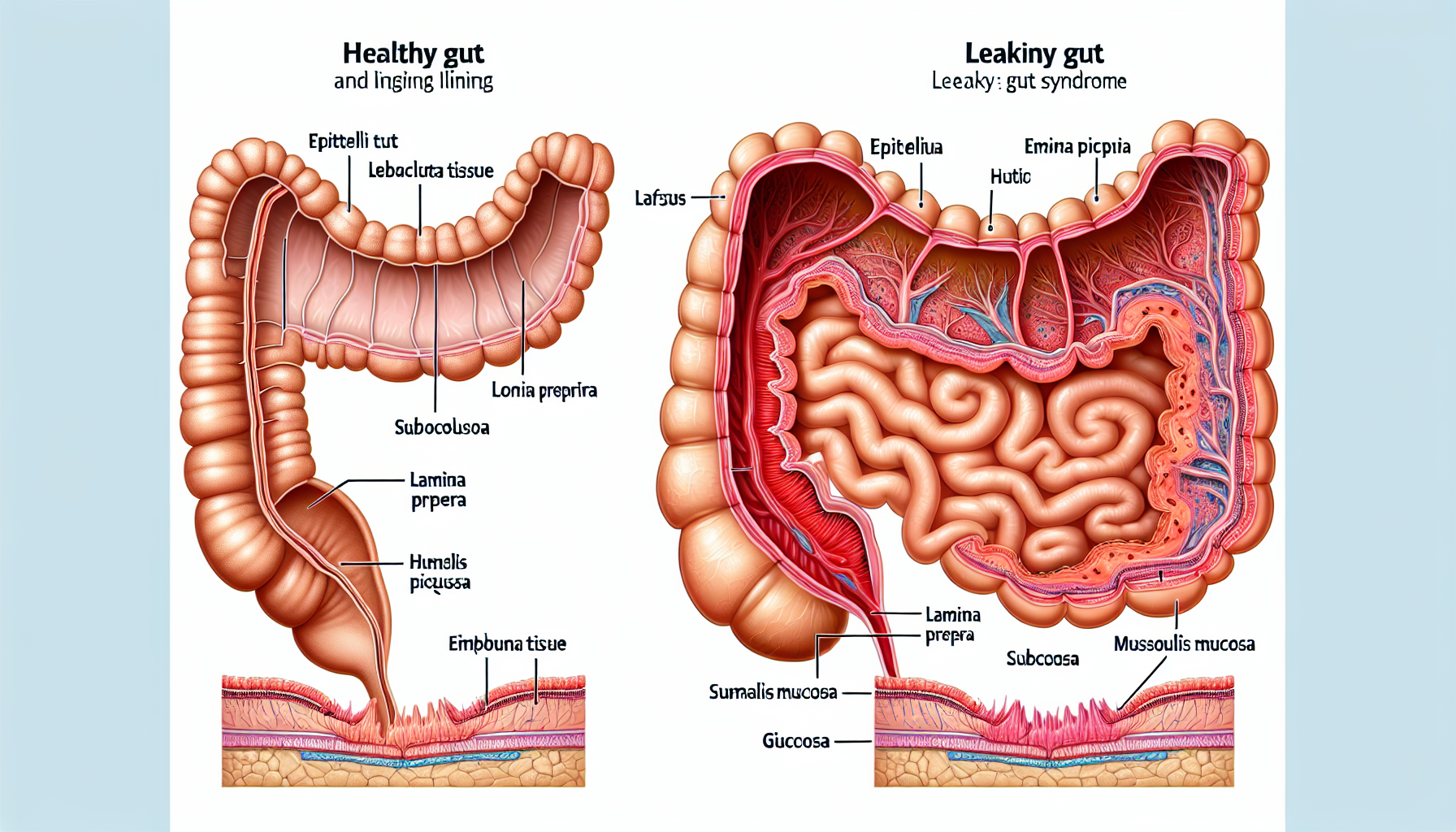Leaky Gut Syndrome is a digestive condition that has gained attention in the health community, though it is not yet fully understood within conventional medicine. It is characterized by the idea that the lining of the small intestine becomes damaged, leading to increased intestinal permeability, which allows bacteria, toxins, and partially digested food particles to "leak" into the bloodstream. This article aims to shed light on the signs of Leaky Gut Syndrome, its potential impact on overall health, and strategies for management and prevention.
Understanding the Gut Lining
The gut lining serves as a barrier between the contents of the intestines and the rest of the body. This barrier is selectively permeable, meaning it allows nutrients to pass through while keeping harmful substances out. When the integrity of this barrier is compromised, it can lead to what is referred to as "leaky gut."
Signs and Symptoms
The signs of Leaky Gut Syndrome can be diverse, as it may affect various systems in the body. Some of the common symptoms include:
- Chronic diarrhea, constipation, gas, or bloating
- Nutritional deficiencies due to malabsorption
- Fatigue and sluggishness
- Headaches, brain fog, memory loss, and difficulty concentrating
- Skin issues like acne, rashes, or eczema
- Cravings for sugar or carbs
- Joint pain and inflammation
- Widespread inflammation
- Autoimmune conditions
It’s important to note that these symptoms can also indicate other health issues, so thorough medical evaluation is necessary for an accurate diagnosis.
Potential Causes of Leaky Gut
Several factors may contribute to the development of Leaky Gut Syndrome:
- Poor Diet: A diet high in processed foods, excess sugar, and unhealthy fats can disrupt the gut flora and damage the gut lining.
- Chronic Stress: Stress can impair the immune response and lead to increased gut permeability.
- Toxin Overload: The accumulation of toxins from the environment, such as pesticides and heavy metals, can strain the digestive system.
- Bacterial Imbalance: An imbalance between beneficial and harmful bacteria in the gut microbiome can lead to inflammation and a compromised gut lining.
- Medications: Certain medications, including nonsteroidal anti-inflammatory drugs (NSAIDs) and antibiotics, can harm the gut’s mucosal lining.
Understanding the underlying causes of Leaky Gut Syndrome is essential for effective management. For in-depth information on digestive health, explore Avix Health’s Digestive Health section.
The Impact on Overall Health
Leaky gut can have far-reaching effects on overall health. The leakage of harmful substances into the bloodstream can trigger an immune response, leading to chronic inflammation. This inflammation may contribute to a variety of health issues, including autoimmune diseases, where the body’s immune system attacks its own tissues.
The Connection with Autoimmune Disorders
Autoimmune disorders, such as rheumatoid arthritis and lupus, have been linked to increased intestinal permeability. The immune system’s response to ‘foreign’ particles in the blood can lead to a mistaken attack on healthy cells. For further reading, the article Gastrointestinal Symptoms of Autoimmune Disorders provides valuable insights.
Nutrient Absorption and Deficiencies
A leaky gut can also lead to nutrient malabsorption, which can cause deficiencies in essential vitamins and minerals. This can have a knock-on effect on various aspects of health, including bone density, cardiovascular function, and brain health. Nutrient absorption is a complex process involving a healthy gut lining, as discussed in Understanding the Role of the Microbiome in Nutrient Absorption.
Strategies for Managing Leaky Gut Syndrome
While there is no one-size-fits-all approach to managing Leaky Gut Syndrome, certain strategies may help repair the gut lining and restore digestive balance:
- Adopt a healing diet: Focus on whole, unprocessed foods, and consider a diet rich in fiber, lean proteins, and healthy fats. Integrating fermented foods can also enhance gut flora.
- Reduce intake of irritants: Limit foods and substances that can damage the gut lining, such as alcohol, caffeine, and NSAIDs.
- Manage stress: Implementing stress reduction techniques like meditation, yoga, or deep breathing exercises can promote gut health.
- Supplement wisely: Probiotics, L-glutamine, and omega-3 fatty acids are among the supplements that may support gut healing. Always consult a healthcare provider before starting any new supplement regimen.
For insights into the benefits of a tailored diet for gut health, read about the Low FODMAP Diet and Its Benefits for Irritable Bowel Syndrome.
Seeking Professional Guidance
If you suspect you have Leaky Gut Syndrome, it is crucial to seek guidance from a healthcare professional. They can provide a comprehensive evaluation and personalized treatment plan. Diagnosis may involve various tests, including stool samples, blood tests, and intestinal permeability assessments.
Additional Resources
To further understand Leaky Gut Syndrome, consider the following external resources:
- A detailed exploration of the gut microbiome’s role in health can be found at The Human Microbiome Project.
- For recent scientific insights into gut health, the American Gastroenterological Association offers a wealth of information.
- Research on the impact of diet on gut lining integrity is presented by the Institute for Functional Medicine.
By arming yourself with knowledge and working with a healthcare provider, you can take proactive steps to manage your digestive health and mitigate the effects of Leaky Gut Syndrome.
Conclusion
Leaky Gut Syndrome remains a topic of debate within the medical community, but the symptoms and potential health implications are very real for many individuals. By identifying the signs and understanding the possible causes, you can take informed actions toward healing your gut and enhancing your overall well-being. Adopting a healthy lifestyle, seeking professional advice, and staying informed are key to managing this complex condition.



